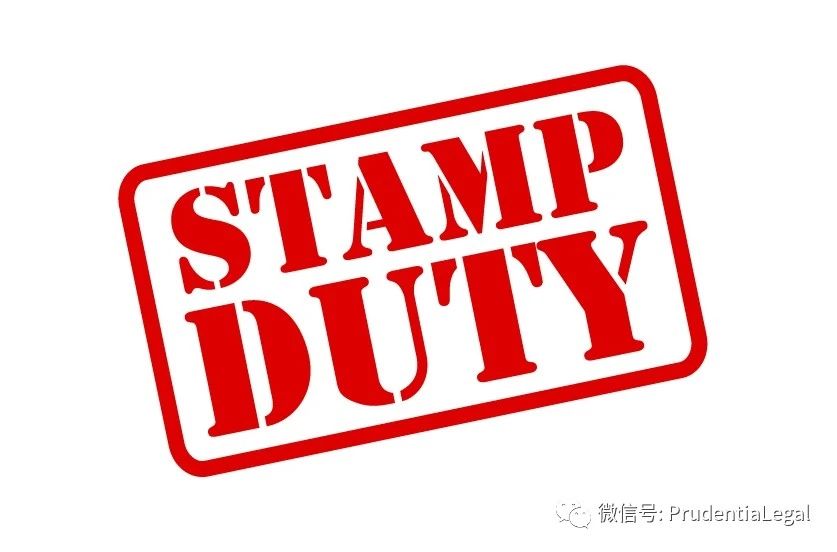Off-the-plan contract new requirements – NSW government focusing on developer
Background
In about 2015, the NSW government has implemented new laws regarding the sunset clause requiring developers shall obtain an order from the Supreme Court before ending contract after the sunset date, because some unfaithful developer unreasonably extended its construction/development period to terminate the contract after the sunset date in order to gain extra benefit for resale.
In 2019, after 4 years of the new sunset law, the NSW Government introduced new laws to provide better transparency and protection for the purchaser for off-the-plan purchases. The legislations include the Conveyancing Legislation (Amendment) Act 2018 (the “Act”) and Conveyancing (Sale of Land) Amendment Regulation 2019 (the “Regulation”) which has taken effect from 1 December 2019.
Disclosure Requirement
In comparison, the VIC contract of sale of land requires “Vendor’s Statement” which must be signed by the vendor and includes several compulsory disclosures before purchaser signs the contract and the Vendor’s Statement. In QLD, a similar system requires a disclosure statement must be provided (separately from the contract) and must be signed by both parties.
Previously in NSW, there were relevant legal requirements for the disclosure but the practice for lawyers to prepare such disclosure was quite “casual” and neither the vendor nor the purchaser would be required to sign and confirm the disclosure documents.
The new laws require the vendor to include the following documents/information:
1. A copy of a draft plan prepared by a registered surveyor, including:
a. Proposed number, identification of the location, and the area of the subject lot;
b. For the strata scheme, the draft floor plan and location plan;
c. For the community, precinct or neighbourhood scheme, the draft location diagram, draft detail plan and draft community, precinct or neighbourhood property plan;
d. the site of any proposed easement or profit à prendre affecting the subject lot, and the site of any proposed restriction on the use of land or positive covenant affecting only part of the subject lot.
2. Proposed schedule of finishes.
3. Any instrument under section 88B of the Conveyancing Act.
4. Draft by-laws, draft management statement, a draft of any proposed development contract, draft strata development contract, draft strata management statement, and draft building management statement, where it is applicable (see r4A(3) of the Regulation).
An approved form of the Disclosure Statement for Off-the-plan Contracts has been available on the NSW Government website. It is still not requiring the signature from either party.
Failing to disclose will give the purchaser an additional right to rescind the contract within 14 days after the contract is signed.
In practice, it is noted that, before the new laws, most of the solicitors who prepare off-the-plan contract would normally include the above information (draft plan, lot number, location, by-laws, etc.), but some lazy lawyers would ignore this necessary information while the purchaser did not have awareness to discover the information. For example, from the writers’ last 14 years of experience, some vendors’ solicitors easily did not bother to provide the schedule of finishes in an off-the-plan contract unless the purchaser’s solicitor wrote to ask for it. The new legislation would force the vendors’ solicitors to fulfill their obligations to include all legally required documents where the purchasers would be fully aware of all relevant necessary information.
Interestingly, the new laws do not require the disclosure of the location or area of any parking or storage area for proposed strata lots, and the allocation of the costs of shared expenses in a building management statement or strata management statement is not required to disclose.
In VIC, normally the location and area of the car parking or storage area would be included in the draft plan, forming part of the Vendor’s Statement. The excluding of parking or storage area information may give some freedom or flexibility to the vendor for final plan registration in NSW. It will require the purchaser to confirm on the front page of the contract whether a car park and/or storage is included with the subject purchase.
Notify changes to ‘material particulars’
Off-the-plan contracts mean the subject property is to build in the next few years/months during which changes may occur. The vendors are required, under the new laws, to notify purchasers of changes that make what was disclosed inaccurate in a ‘material particular’ which will adversely affect the use or enjoyment of the lot being sold, including (in Section 66ZL of the Act)
· The draft plan,
· By-laws
· Schedule of finishes
· Easements or covenants
· Strata management statement or building management statement
· Management statement for a community, precinct or neighbourhood scheme
· Development contract or strata development contract.
Attention must be paid to the ‘not material particular’ in r19A(2) of the Regulation, where notification of changes is not required, including change in the proposed lot number, street name, allocation of the costs of shared expenses in a building management statement or strata management statement, location or area of the parking or storage area (but only if the change or inclusion is made according to the terms of the contract).
Section 66ZN of the Act requires the notification must be provided using the approved form by the NSW Government at least 21 days before completion.
Purchaser’s right to rescind or compensation
In case there is a change to a ‘material particular’ where the purchaser can show that they not have entered into the contract had they been aware of the change and that they are materially prejudiced by the change, the purchaser has a right to rescind the contract (Section 66ZO of the Act). If such ‘material particular’ change has not fully disclosed or notified, but such changes are found out in the final registered plan which must be provided by the vendor to the purchasers at least 21 days before settlement, the purchasers may have right to rescind the contract (S66ZP of the Act).
Such a rescission notice must be in writing and served on the vendor no later than 14 days after receiving the notice of the changes.
Previously, lots of the vendors’ solicitors would normally draft the off-the-plan sale contract to allow the vendor to notify the purchaser the final registered plan 14 days and sometimes even 7 days before settlement, and only allowing 7 days for a purchaser to rescind contract after notification of changes instead of ‘receiving the notice of the changes’. The new laws give purchasers more preparation time for settlement and an affirmative time period for notice of rescission.
If a purchaser who has above rights does not want to rescind the contract, he or she may be able to make a claim, by serving on the vendor a written notice before completion and no later than 14 days after the purchaser being notified of the change to a material particular or being served with the registered plan that reveals the inaccuracy, for compensation from the vendor of up to 2% of the purchase price of the subject property.
Deposit to be held in trust
Any money paid by the purchaser by way of deposit or installment under the contract must be retained by the stakeholder in a trust or controlled money account during the contract period.
According to new laws in NSW, there is still no legal requirement for the limitation of the percentage of the deposit for the off-the-plan contract, unlike VIC and QLD where a 10% deposit is a legal limitation. It means, legally speaking, a developer still can request more than 10% as a deposit.
However, the NSW Government has improved as now it requires the deposit must be held in trust. Previously, there were several aggressive developers in NSW that would demand the deposit to be released to the developers during development, but the purchasers did not have any power to negotiate with the developer, only taking it or leaving it. The new laws would force the deposit to be held in trust and it will keep the money paid by the purchasers safe to avoid unnecessary risk.
Longer cooling-off period for off-the-plan contracts
Where normally the cooling-off period is 5 business days, the new laws give the off-the-plan purchasers 10 business days cooling-off period. It gives more time for the off-the-plan purchasers to consider the purchase given the complication of the off-the-plan contract.
New sunset clauses
The 2015 laws indeed prevent the developer from using the sunset clause to terminate the contract, but it only defines the registration of the plan. The 2019 new laws extend the sunset events to include not only the creation of the subject lot but also the issue of the occupation certificate or other event prescribed by the regulation and permits the Court to award damage if the contract is ended by the vendor under a sunset clause.
This sunset clause new law will apply to all off-the-plan contracts, no matter they were signed before or after 1 December 2019.
What impact will the changes have on investors and developers?
For Investors, it means more reliability, transparency, and protection for the off-the-plan purchase, including longer cooling-off period, more detailed disclosure documents, deposit in trust, stronger sunset clause protection, more rescission rights and longer settlement preparation time. It may give more confidence for the investors on the off-the-plan investments. It also gives the off-the-plan purchasers a reasonable alternative solution where there is a change of ‘material particular’ by compensation, instead merely rescission option. However, before or after the commencement date of the new laws, due to the competitive conveyancing service market, unreasonable low legal fees for conveyancing may lead to incompetent legal practitioners and conveyancers survive better with lower legal fees, but such legal service may jeopardize the purchasers’ right and may trigger complex litigation. Hence, all off-the-plan purchasers shall carefully consider choosing experienced, knowledgeable and professional legal service providers in order to truly protect their own rights during such transactions.
For developers, the new laws have tried to tie their hands to disclose more documents/information in the contract, give notice properly and earlier, leave the deposit in trust, and permit a longer time for the purchase to prepare settlement and give notice. It seems to add more responsibilities, risks, and costs to the developers who must carefully plan its marketing strategy, DA application, construction procedure and monitoring, settlement arrangement and notification, a document including contract preparation, in advance and in detail. In fact, most of the requirements in the new laws, especially the disclosure responsibilities, have been met by reputable law firms even before the commencement of the new laws.
In the legal profession, we always discuss the issue ‘be a lawyer or be a good lawyer’. Being a lawyer is to meet minimum requirements of the law but being a good lawyer would require the lawyer to think and act not only in the best interest of the client but also with a broader vision of the business nature and community or social consideration.
So choose a good lawyer.
You may also read the above article from link below:
http://www.apimagazine.com.au/property-investment/buying-before-building-now-a-safer-option-in-nsw


相关内容
-
 详情
详情Avoiding Fraud – Importance of Legal Advice Illustrated by Two Cases
Avoiding Fraud– Importance of Legal Advice Illustrated by Two CasesPrudentia Legal: Edmund Leung2021-09-10Believing in the wrong person may lead to significant consequences, as once again demonstrated in recent cases in our firm. Sometimes mistakes may even compound on each other to rea
-
 详情
详情Temporary changes States have made to signing, witnessing or attending to documents
-
 详情
详情Employees or Contractors – A Discussion on New Developments for App Transport and Delivery Platforms
The gig economy has become everyday occurrence in the past decade. It has also developed in a way exceeding what may be originally envisioned. From the consumer’s perspective, the ease of on-call services for transport and food delivery alike has led to an explosion in demand, with many newcomers t
-
 详情
详情Summary of changes to the new VIC Residential Tenancy laws
The start date of the Residential Tenancies Amendment Act 2018 (the “ACT”) which outlines the framework of Residential Tenancy laws has been delayed due to coronavirus (COVID-19), with the amendments to be introduced by 29 March 2021, rather than the original 1 July 2020. The Residential Tenancies
-
 详情
详情Acting as Witness in Legal Proceedings
While direct involvement in criminal matters or civil litigation might not be that common for a person of the general public, it might well be possible that you have witnessed a crime or an event, and may be required to give evidence in court as a witness. What does being a witness entail? Speaking
-
 详情
详情Child Maintenance Trust
Division 6AA section 102 AG of the Income Tax Assessment Act 1997 (Cth) provides that a Child Maintenance or Child Support Trust (“CMT”) can be established following a relationship breakdown. Simply speaking, A CMT is a discretionary trust specifically set up to provide support for a child (or chi
-
 详情
详情Recent Changes to NSW Stamp Duty and Land Tax Policies
Stamp DutyThe New South Wales government has previously announced that they are introducing new legislation to increase the threshold amount for offering stamp duty exemption or reduction for first home buyers, such that purchasers of higher-priced properties may also benefit. This policy change has
-
 详情
详情House and Land Package – Some tips to share
House and Land Package – some tips to shareIntroductionIt’s noted the “house and land package” in the property market has maintained its popularity over the years. It’s difficult to find a brand new four-bedroom free-standing house within a 30 km radius from the Sydney CBD under $1 millio
-
 详情
详情New Australian Visa Policies Applicable to Hong Kong
The Prime Minister of Australia, the Honourable Scott Morrison MP, has announced yesterday that new visa policies and measures aimed to attract students and business talents from Hong Kong to Australia, and allow them to stay in Australia, will be offered to “Hong Kong passport holders”. It is not
-
 详情
详情Off-the-plan Stamp Duty Concessions in Victoria
The state of Victoria, specifically its capital Melbourne, has many high-rise and multi-occupancy residential developments completed and ongoing. Regeneration and redevelopment projects resulting in high-rise skyscrapers have dramatically changed Melbourne’s skyline in the past decade. Such multi-o
-
 详情
详情Intervention Orders In VIC
An individual (the applicant) (or police department but today we only talk about the individual application) may apply for an intervention order in the Magistrates Court of Victoria which places legal restrictions upon another individual (the respondent) and prohibits the respondent from engaging in
-
 详情
详情Preparation of Contract for the Sale and Purchase of Land in New South Wales
A contract for the sale and purchase of land (Contract) comprises three sections: The first being the substantive contract, usually the standard contract drafted by the Law Society of New South Wales and the Real Estate Institute of New South Wales, containing general conditions; the second being th